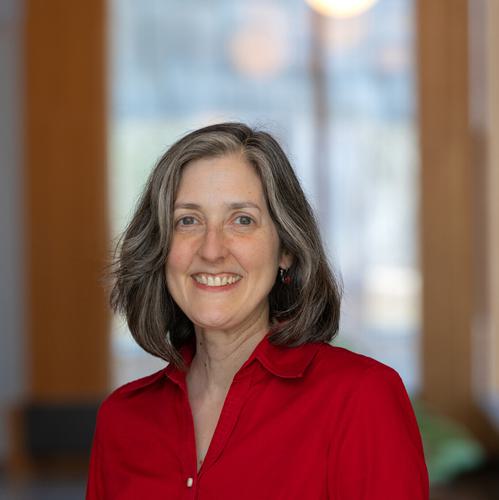
Tracy Gleason
Nellie Zuckerman Cohen & Anne Cohen Heller Professor of Health Sciences and Professor of Psychology
Developmental psychologist studying relationships, real and imagined, with a focus on young children's imaginary companions.
Most of my research has been concentrated on exploring and describing the relationships that some preschool-aged children have with imaginary companions. The phenomenon of imaginary companions has not received a great deal of attention in the psychological literature and is not well understood, so one goal of my research is to provide a definitive description of pretend friends with an eye toward how they might function in development. Studying the ways in which children talk about, and sometimes interact with, imaginary companions has the potential to illuminate how young children understand and think about social relationships in general. My hope is that by thinking about imaginary companions as relationship partners, I may be able to figure out how they function within children’s social networks. Such information could lead to a better understanding of why some children create them and their functional significance in development.
I teach courses in developmental psychology and research methods in developmental psychology, in which students conduct projects at the Wellesley College Child Study Center. At the advanced level, I teach a seminar on social imagination (the ways in which we use our imaginations to help us regulate and understand our relationships), and a Calderwood Seminar in Public Writing called Psychology in the Public Interest. I have also supervised numerous independent study and thesis students in my lab (see link below), and I greatly enjoy these mentoring opportunities.
In addition to my work on imaginary companions, I work in the area of moral development with a colleague at Notre Dame, Dr. Darcia Narvaez. Dr. Narvaez and I have published a few papers on children’s understanding of moral texts, and along with several other colleagues we are investigating the match (or mismatch) between current parenting practices and those characteristic of the environment in which human beings evolved. We are concerned that large deviations from the environment of evolutionary adaptedness, as Bowlby called it, may result in developmental compromise, particularly in the domain of morality.
In my free time, I play the oboe with the New Philharmonia Orchestra, and mostly I enjoy spending time with my husband and my twins. Contrary to popular belief, I am not currently conducting any at-home twin studies.
Education
- B.A., Dartmouth College
- Ph.D., University of Minnesota-Twin Cities